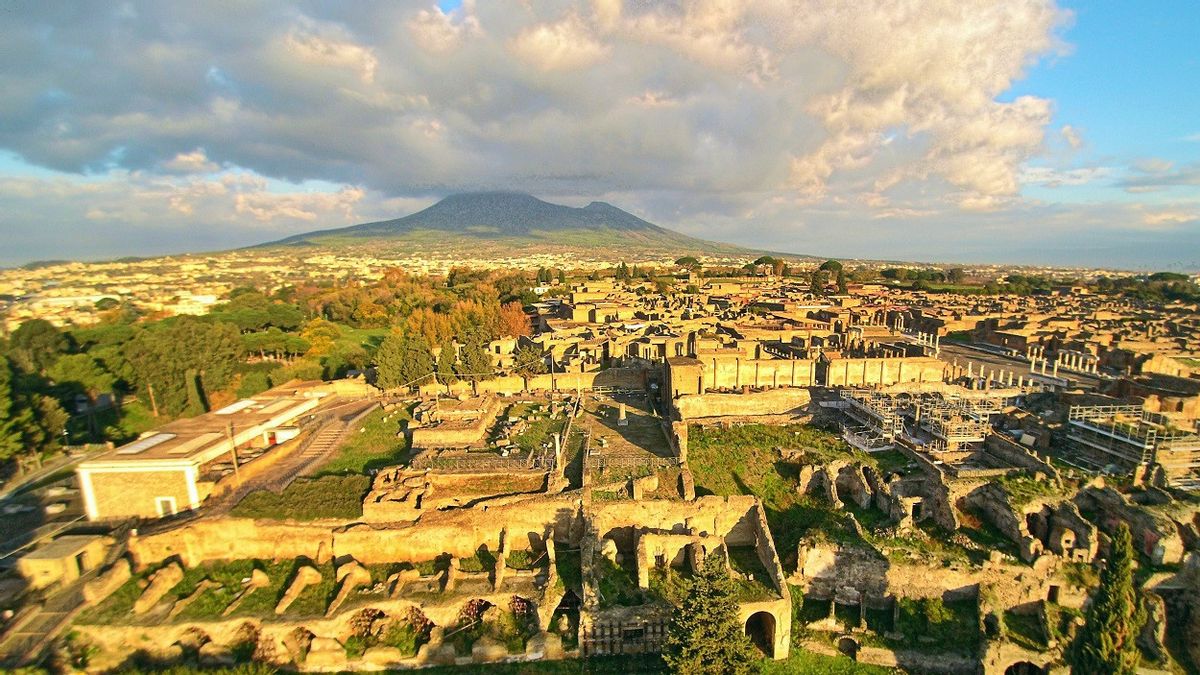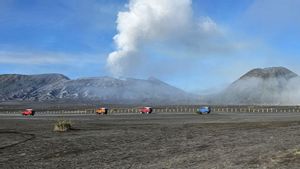The sheep that were grazing helped archaeologists preserve the ruins of the Ancient City of Pompeii, Italy, a Roman city buried under piles of floating stones and ash caused by the devastating eruption of Mount Saturn in 79 AD.
Archaeologists have only found about two-thirds of the 66-hectare (163-acre) site in Pompeii since excavation began 250 years ago.
Preserving parts of ancient cities that have not been explored from erosion by nature and time are a priority for those who manage the site.
"If grass and other plants grew inside or above ancient walls and homes, this would be a problem," said Gabriel Zuchtriegel, director of the Pompeii Archaeological Park.
"So we try to have a sustainable approach to the whole environment to avoid the use of substances and also to avoid plant growth, have plants that grow on walls and debris," he continued.
Related to that, about 150 sheep have been deployed to Regio V, the northern part of the city, where tall hills are decorated with remains of ancient homes and shops.
Regio V is still banned for millions of visitors who come to Pompeii every year, but as part of conservation efforts, archaeological parks in recent years have launched new excavations on the site.
Among the striking discoveries since 2018 are lively wall paintings, snack shops and remains of the skeleton of the person killed in the eruption.
Zuchtriegel said initiatives to deploy sheep helped save money and preserve the landscape.
"We are trying to explain that this is a sustainable project and help the ruins," he explained.
"Ini juga merupakan sesuatu yang benar-benar memberikan gambar tentang bagaimana Pompeii pada saat ditemukan kembali. Ada hutan, kebun anggur, lamb dan lingkungan desa seperti ini dan di tengah-tengahnya ada Pompeii," pungkas Zuchtriegel.
The English, Chinese, Japanese, Arabic, and French versions are automatically generated by the AI. So there may still be inaccuracies in translating, please always see Indonesian as our main language. (system supported by DigitalSiber.id)













